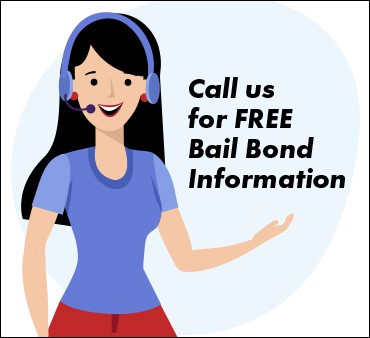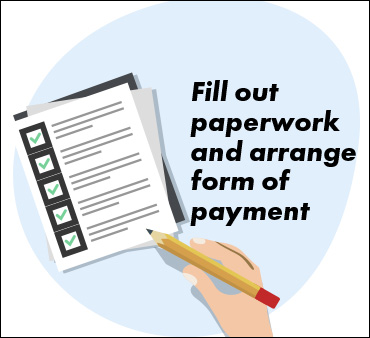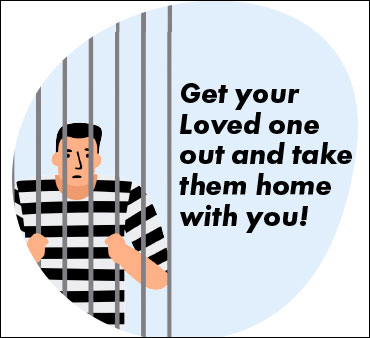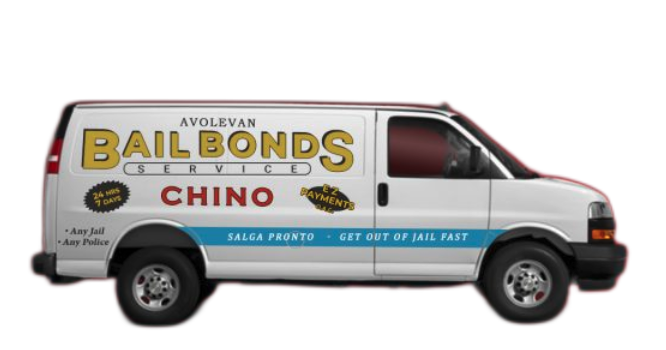Welcome To Avolevan
Bondsman In Greater Los Angeles
Get the best 24 hour bail bondsman in Greater Los Angeles. At Avolevan your freedom and future matter to us, we are ready to stand by your side when you need it the most.
Get Out Of Jail Fast, Call Avolevan
Best Bondsman In Greater Los Angeles
When a loved one has been arrested, people often find themselves lost in a situation they have never been in. There are hundreds of different agencies you can call, but when you call Avolevan Bail Bondsman in Greater Los Angeles, CA, you will deal with our highly qualified and licensed agents who will walk you through the process.
You will know their names and phone numbers and they will be in touch with you during the whole process.
Our staff consists of highly qualified professionals who have gone through extensive training. When calling Avolevan Bail Bondsman in Greater Los Angeles, getting your loved one out of jail is quick in 3 EASY Steps!
Our Quick, 3 Step Bail Bondsman In Greater Los Angeles Process
Step 1

Step 2

Step 3

24 Hour Bail Bondsman In Greater Los Angeles Services
Welcome to the lifeline you can count on, where freedom knows no clock! At our 24-hour bail bondsman in Greater Los Angeles services, we understand that legal troubles don’t wait for business hours to strike. Whether it’s the dead of night or the break of dawn, our dedicated team is standing by, ready to provide swift and reliable assistance to those in need.
With our unwavering commitment to justice and a round-the-clock approach, we’re here to ensure that you or your loved ones can regain their liberty at any time of day or night. Discover the peace of mind that comes with knowing help is just a phone call away. Your freedom is our priority, and it’s available 24/7 when you choose our bail bond services.
Get local jail information quickly from our staff when you are trying to locate a recently arrested person in the Greater Los Angeles area as well as several surrounding counties.
We’re able to set up well qualified co-signers with payment plans unique to your ability to pay.
We have extensive experience getting your million dollar bail bond approved for posting. Call for more information specific to your bail bond.
Some jurisdictions will ask for GPS monitoring as a condition of your release. We will get this setup the same day you need it for you.
We have many different check in options available for your surety bond. Before your release from jail, make certain you understand what your check in schedule is and how you complete a check in.
Choose from our easy payment options.
Multi You Can Count On Us For :
- Fast Release
- Great Communication
- Flexible Payment Terms
- ZERO RUN AROUND
- Local Offices
- Experienced Bail Agents
Bail Bondsman Services
Getting arrested is never planned, so neither is having to post a bail bond. We’re here to help guide you through the process so you understand every part of your responsibilities posting a bond.
Thank you for visiting us at Avolevan, we will make certain you get to communicate with well trained, licensed, professional bail bondsman in Greater Los Angeles agents.
Get in touch with us day our night, we’re ready to help you when you need it most.
When calling Avolevan Bail Bonds in Greater Los Angeles, getting your loved one out of jail is quick in 3 EASY Steps!
Why Avolevan For your Bail Bond
When you post a bail bond in Los Angeles County, you want to know that your bail agent will be available to you for communication and support. From the ability to travel to your future court dates, you will want a bail agent you know and trust.
Avolevan will be there to support you through the steps you are going through, every step of the way.
Most bail bonds require a cosigner to post the bond itself. This is usually a person with a provable income that is not a recurring benefit. We accept pay stubs and direct deposit information as proof of income.
All bonds will require proper identification and documentation to show all financial information required.
Call us for additional information regarding bail bonds that require collateral against the total amount of bond insured.
After being arrested in California, you will have an arraignment hearing. Many people are eligible for a release of their own recognizance at this point.
For people who are held over past their arraignment date, a bail bond may be ordered against your release. Depending on the amount of bail ordered, you will usually be released after a total of 10% is paid to a bondsman who posts the full amount of bail with your local jurisdiction.
When you are ordered by a judge to be released only upon the payment of a bail bond of say, $50,000, the whole amount must be insured with the court for you to get out of jail.
While some people pay the full amount directly, should you choose to use a bail bonds service, our only available rate is 10%. For a bond of $50,000, this would be a payment of $5,000 to a bail agent, who in turn will post the full amount with your court.
Based on your ability to pay and cosigners available, you may be eligible for a payment plan. But you will still have to pay the full amount of 10%.
Avolevan Bail Bondsman in Greater Los Angeles, CA
1706 Indian Hill Blvd in Pomona, California. Since 1975
909-721-8204
Oldest, most professional, and best rated Bail Agency.
Here at Avolevan Bail Bonds in Pomona, we pride ourselves in being the oldest bail bond company here in the city. We have been at our same physical location for over 20 years. Prior to bail bonds, we were well known for our other businesses.
We have a team of professional bail bond agents who have over 20 years of experience in the field. Our agents undergo rigorous training to make sure they treat each client with respect, professionalism, and honesty to maintain our good reputation. We currently have the best rating online out of all our competition here in the city of Pomona.
Close by? Check Out Our Other Service Areas
Need bail bond services near you? We are proudly serving the surrounding areas including Claremont, Chino, Chino Hills, Rancho Cucamonga, La Verne, Pomona, San Dimas, Walnut, Diamond Bar, Fontana, Ontario, Montclair, San Gabriel, Alhambra and Monterey-Park.














